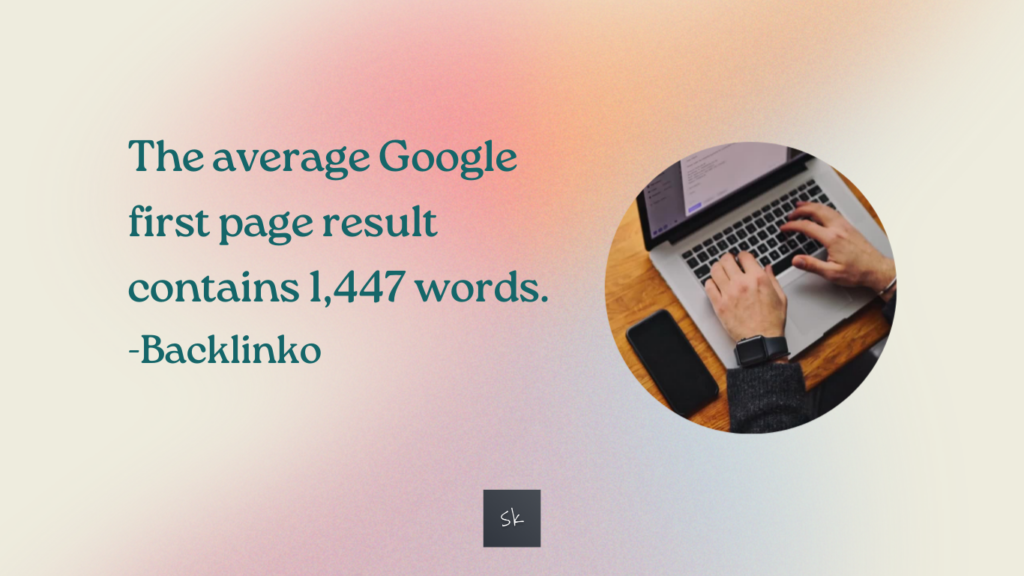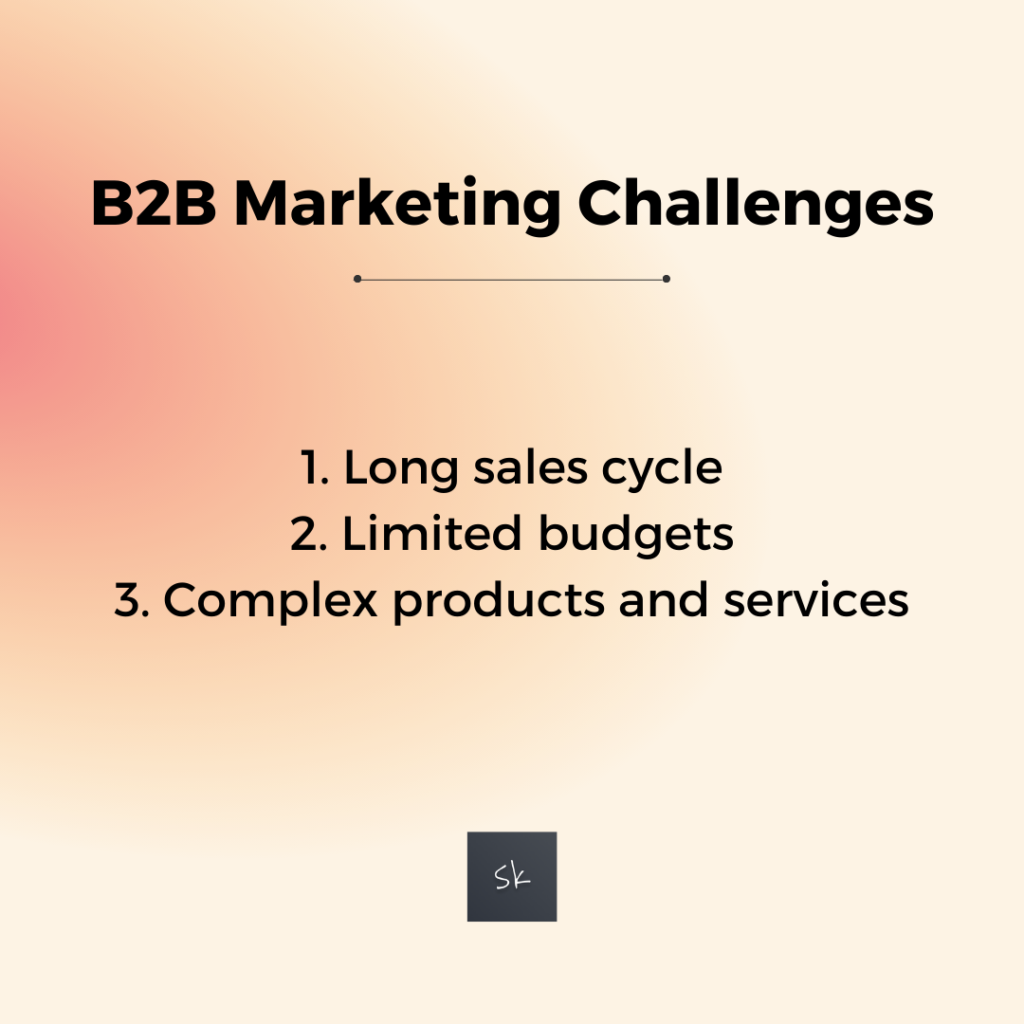Are you tired of seeing your competitors grow and thrive while you struggle to get off the ground? The key here is effective marketing.
If you’re a business owner or marketer, you’ll know that even the best product or service can struggle without a solid marketing strategy in place. And B2B marketing is no exception.
B2B, or business to business marketing, is promoting and selling products or services to other businesses.
In this blog post, we’ll explore the definition, goals, and challenges of B2B marketing, and why it is so important for businesses looking to succeed. We’ll discuss how it can help you connect with your target audience, build relationships, and drive sales, regardless of how good your product or service is.
Table of Contents
What is B2B marketing?
B2B marketing, also known as business-to-business marketing, involves the promotion and sale of products or services between two businesses. This type of marketing differs from B2C marketing, which focuses on selling products or services directly to consumers. Instead, a B2B marketing strategy is designed to appeal to the specific needs, interests, and pain points of other businesses.

The B2B marketing process involves identifying potential customers, developing targeted marketing messages and materials, and deploying those materials through a variety of channels. These could be:
- Email marketing
- Social media marketing
- Content marketing
- Digital marketing
B2B marketers often rely on account-based marketing (ABM) techniques, which involve creating personalized marketing messages and materials for individual accounts.
An effective B2B marketing process entails a thorough understanding of the target audience’s needs, behaviors, and decision-making processes, as well as a deep knowledge of the product or service being offered. When marketers leverage these data-driven insights and develop targeted marketing strategies, they can successfully promote and sell their products or services to other businesses.
B2B vs B2C marketing: Key differences
B2B vs B2C marketing can be explained through target audience, sales process, purchase decisions, message tone, marketing tactics, and branding strategies.
Here are the key differences between B2B vs B2C marketing:
| B2B Marketing | B2C Marketing | |
| Target Audience | Other businesses or organizations | Individual consumers |
| Sales Process | Longer sales cycle with multiple decision-makers | Shorter sales cycle with fewer decision-makers |
| Purchase Decisions | Based on logic, ROI, and long-term value | Based on emotions, needs, and personal preferences |
| Message Tone | Professional and fact-based | Emotional and aspirational |
| Marketing Tactics | Relationship-driven, with personalized messages | Mass advertising, with broad reach and frequency |
| Branding | Focused on reputation and expertise | Focused on building emotional connections with customers |
While B2B marketing is typically relationship-driven and based on logic and long-term value, B2C marketing is often more emotional and aspirational, relying on mass advertising and building emotional connections with individual consumers.
Benefits of defining the B2B marketing process
Here are the major benefits of a well-defined B2B marketing process:
- A targeted approach: B2B marketing allows businesses to target specific organizations and decision-makers with personalized messages and marketing materials, increasing the chances of generating leads and driving sales.
- Long-term relationships: It often involves building long-term relationships with other businesses, which can lead to repeat business and ongoing revenue streams.
- Higher value transactions: B2B sales transactions are typically higher in value than B2C transactions, so each sale can have a greater impact on a business’s bottom line.
- Data-driven insights: It relies on data and analytics to inform marketing decisions, which can lead to more efficient marketing campaigns.
- Enhanced brand reputation: By demonstrating expertise and building trust with other businesses, B2B marketing can enhance a business’s brand reputation and credibility.
- Greater customer loyalty: Building long-term relationships with other businesses can lead to greater customer loyalty and advocacy, which can further enhance a business’s reputation and revenue streams.
- Stronger market position: Effective B2B marketing can help businesses establish a stronger market position, making it more difficult for competitors to gain a foothold in the market.
Now that you know the benefits of it, learn the top B2B marketing statistics to see the results you can drive.
B2B marketing statistics in 2023

As of 2023, here are some important B2B marketing statistics you should know:
- According to a 2021 report by Content Marketing Institute, B2B content assets that were less than 3,000 words ranked third in generating the best results over the past 12 months.
- One of the crucial B2B marketing statistics you should know is that 40% of B2B marketers have a content strategy they document.
- According to Backlinko, listicles are very popular on social media and get significantly more shares than “how-to” posts and infographics, with an average of 218% and 203% more shares, respectively. This is likely because lists are easy to read, quick to digest, and provide readers with actionable takeaways they can implement.
- To leverage organic social media marketing, over 90% of B2B marketers opt for LinkedIn as a preferred channel.
- In e-commerce, a significant 39% of B2B shoppers prefer having a self-serve alternative.
Top 6 Goals of B2B marketing
Here are some key goals of business to business marketing:
1. Lead generation
One of the primary goals of B2B marketing is to generate leads that can be converted into sales. This involves identifying potential customers and reaching out to them with targeted marketing messages and materials.
2. Sales conversion
B2B marketing aims to convert leads into paying customers by effectively communicating the value proposition of the product or service being offered.
3. Relationship building
B2B marketing is often focused on building long-term relationships with other businesses, which can lead to ongoing revenue streams and repeat business.
4. Brand awareness
B2B marketing can help businesses increase brand awareness and establish themselves as thought leaders in their industry, enhancing their reputation and credibility.
5. Thought leadership
By creating valuable content and thought leadership pieces, businesses can position themselves as experts in their field, which can lead to increased trust and credibility among potential customers.
6. Market share growth
Effective B2B marketing can help businesses capture a larger market share by reaching new customers and establishing a stronger market position.
Challenges of B2B marketing

No type of marketing comes without its fair share of challenges. Here are some early-stage business marketers may notice:
1. Long sales cycle
B2B sales cycles are typically longer and more complex than B2C sales cycles. This is because B2B transactions often involve multiple decision-makers, each with their own set of priorities and concerns. As a result, it is challenging to keep prospects engaged throughout the sales cycle and to close deals in a timely manner.
To get ahead, businesses can focus on building strong relationships with potential customers and providing them with personalized content and messaging at each stage of the sales cycle. Using account-based marketing tactics can also help to target specific decision-makers and keep them engaged.
2. Limited budgets
B2B marketing budgets are often limited, especially for small and medium-sized businesses. This can make it difficult to develop and execute effective marketing campaigns that generate leads and drive sales.
To address this challenge, businesses can focus on prioritizing marketing initiatives that are most likely to generate a return on investment, such as targeted account-based marketing campaigns and personalized content marketing. Leveraging cost-effective marketing channels, such as email marketing and social media, can also help to maximize the impact of limited budgets.
3. Complex products and services
B2B products and services are often more complex than B2C products, requiring more detailed and technical marketing materials to communicate their value proposition effectively. This can be a challenge for businesses that lack the resources or expertise to create high-quality marketing content.
To overcome this challenge, businesses can focus on simplifying their messaging and breaking down complex products and services into easily digestible components. Leveraging customer testimonials and case studies can also help to illustrate the value of complex products and services in a more tangible way.
Up your B2B marketing process
The B2B marketing process plays a critical role in the growth and success of businesses. While it presents its own unique set of challenges, the benefits of effective B2B marketing are many, including increased brand awareness, lead generation, and market share growth.
Here is the main takeaway: To flourish, you must figure out ways to overcome a long sales cycle, and limited budgets assigned, and break down complex products and services by developing targeted marketing strategies, prioritizing cost-effective marketing channels, and simplifying your messaging.
To achieve success, marketers must invest the time, resources, and effort required to develop effective marketing strategies.
Need a B2B writer who can create informative articles around your product? Write to me.
Related Posts
March 18, 2024
Technical SEO Audit: A 6-Step Guide to Improving Website Performance
0 Comments9 Minutes



